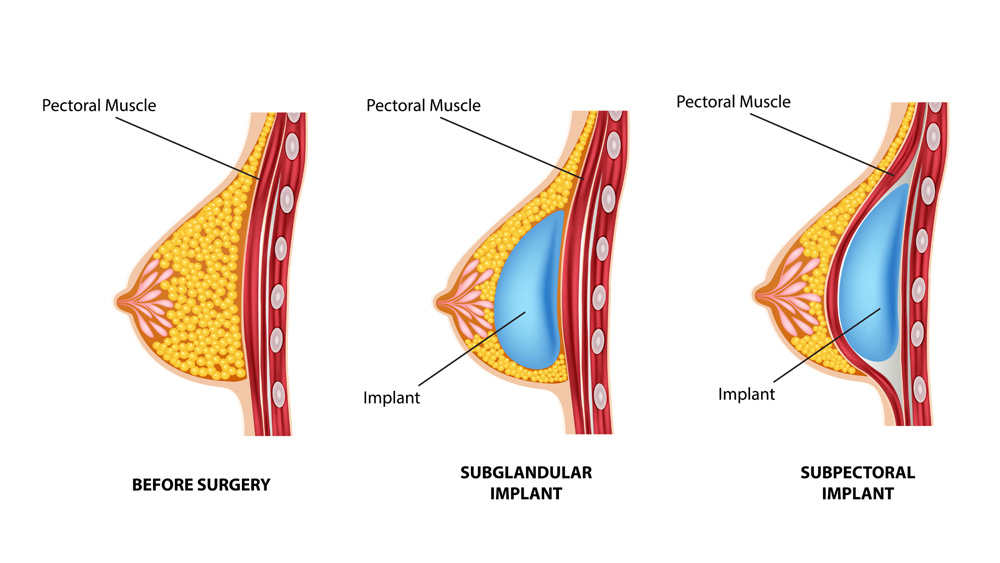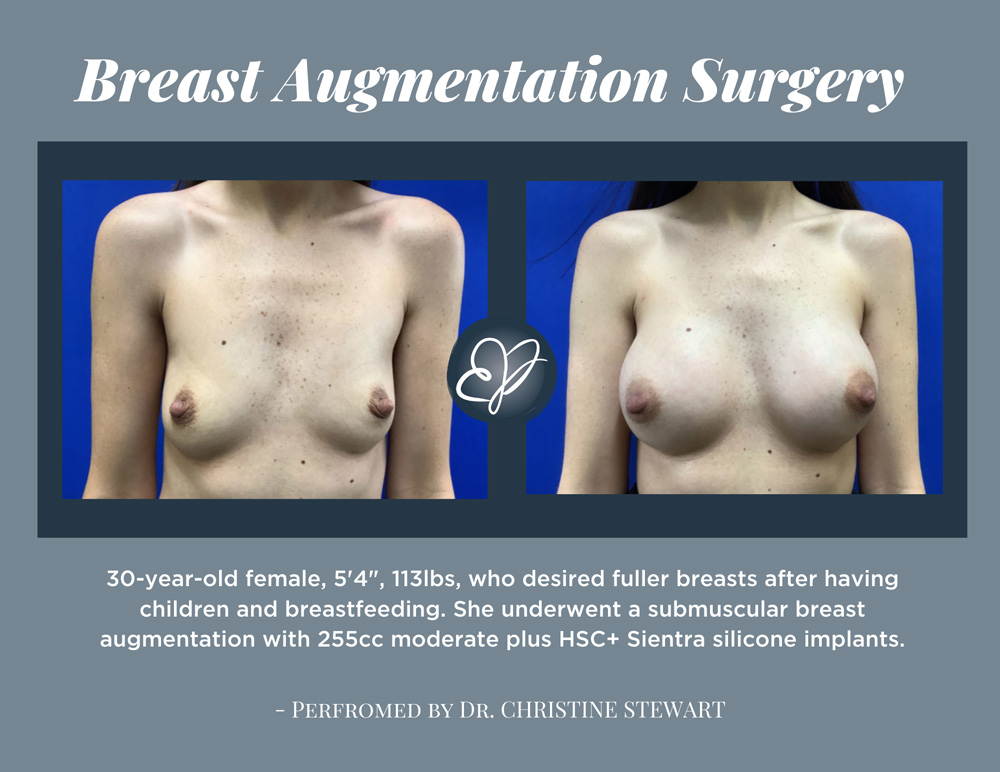Tens of thousands of women of all ages and backgrounds undergo Breast Augmentation surgery every year. Each enters the operating room with her own reasons and aspirations for enhancing the size and shape of her breasts with implants. But, some women are reluctant to pursue surgery if they plan on having children in the future. Their concern is that implants may impact their ability to breastfeed. Although it is essential to discuss your future family plans with your plastic surgeon, rest assured that breastfeeding with implants is possible, safe, and far more common than you may think. Here are four important considerations for women who are interested in Breast Augmentation surgery but are concerned about the implications that breast implants may pose for breastfeeding in the future.

“Successfully breastfeeding with implants is not only possible, but it is also completely safe,” says Dr. Christine Stewart, a board-certified plastic surgeon and partner at Edina Plastic Surgery. “In an ideal world, your plastic surgeon would have you wait until you are done having children to have a Breast Augmentation. This is because the size, shape, and appearance of the breasts can change so dramatically with pregnancy and breastfeeding, but as we know, life seldom adheres to a strict schedule or plan. Having a Breast Augmentation after you’re done having children allows your plastic surgeon to address all of the changes which may have occurred in your breasts, such as loss of elasticity, changes in the shape or size of the areola, and deflation of the breasts’ volume. That is why it is preferable to have this surgery after breastfeeding, but that by no means suggests that a woman should not or cannot get breast implants before she decides to start a family or breastfeed her child. There are just some things she may want to consider and discuss with her plastic surgeon to ensure she is making the best decision for her lifestyle and life stage.”
“It is important to also note that it can be difficult to predict whether a woman will be able to breastfeed, regardless of whether she has had breast surgery or not,” stresses Dr. Stewart. “Statistically, there will always be a percentage of women who get breast implants who will not be able to breastfeed because that was their baseline physiologic ability.”
#1 – The placement of your breast implants may impact your ability to breastfeed.
“During a Breast Augmentation, implants are either placed beneath the pectoral muscles of the chest or above these muscles, behind the mammary glands and milk ducts,” explains Dr. Stewart. “Placing implants behind the pectoral muscles is more advantageous for breastfeeding, as it reduces the impact on the milk ducts and surrounding nerves and allows milk to reach the nipple freely.”

Where incisions are made to allow a breast implant to be inserted may also influence the ability to breastfeed effectively. Incisions along the natural fold under the breast are further from the mammary glands and associated nerves, as opposed to those made around the areola. Incisions around the areola may carry a slightly increased risk of damaging nerves that, when stimulated, trigger the continuous production of milk as a baby nurses.
“Even if a woman experiences some damage to the milk ducts or nerves around the nipple during Breast Augmentation, the breast generally has enough other ducts and nerves to compensate and produce enough milk for a baby’s needs,” says Dr. Stewart. “Milk ducts and nerves can also reform and generate new pathways through the breast tissue over time.”
#2 – The appearance of your breasts, and therefore your implants, will change after pregnancy and breastfeeding.
The size and shape of a woman’s natural breasts can change significantly during pregnancy and breastfeeding. These changes will not directly impact the function of breast implants. Implants will remain intact and in the same placement, but the overall appearance of breasts may appear different and never fully return to their pre-pregnancy state.

“Pregnancy and breastfeeding generally increase the size of breasts to allow for milk production,” explains Dr. Stewart. “Breast tissues stretch to accommodate this fuller size, but when breastfeeding has stopped, and tissues begin to shrink back to their previous size, a woman may notice pronounced sagging and deflation of her breasts, even with implants. In addition, her nipples may now point downwards, and the size and shape of her areolas may become altered. In these cases, a woman with implants may wish to undergo subsequent breast surgery, such as a Breast Lift to restore more youthful looking breasts.”
#3 – Breastfeeding with implants.
“When breastfeeding after Breast Augmentation, we advise our patients to make sure their baby is feeding from both breasts and that the milk from both breasts is fully drained during each feeding session either naturally or via breast pump,” says Dr. Stewart. “Fully draining each breast helps reduce the risk of a woman developing mastitis, or inflammation of the breast tissue. Mastitis can cause scar tissue to tighten and constrict around a breast implant which can be painful for a woman.”

“And for anyone who is wondering – no, a baby cannot bite or harm your implant during breastfeeding. Your implants are protected by too much natural breast tissue.”
#4 – Every woman is different. So are her breasts.
Although many wish they did, plastic surgeons do not have crystal balls that allow them to see how a woman’s breasts will change after pregnancy and/or breastfeeding. Each Breast Augmentation patient is unique, as are her breasts and how her body will respond to pregnancy and breastfeeding.
“The most important thing about Breast Augmentation and breastfeeding is to stay in open and direct communication with your plastic surgeon,” advises Dr. Stewart. “Share your family planning intentions with your surgeon during your initial consultation for breast implants. A good surgeon will consider your lifestyle, family aspirations, and the goals you have for your appearance to provide you with the education and options that are available so you can make the best decision for you!”
Are you interested in Breast Augmentation surgery? Schedule a complimentary consultation with Dr. Christine Stewart or any board-certified plastic surgeon at Edina Plastic Surgery by calling (612) 688-3177, texting (952) 925-1765, or CLICKING HERE.


